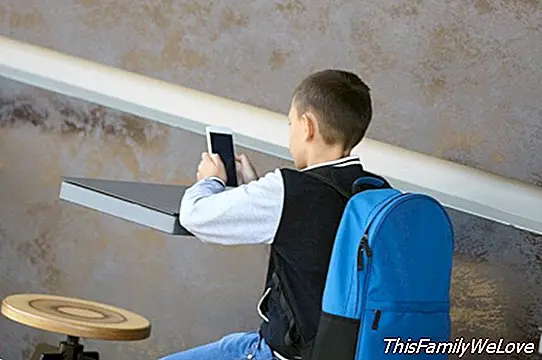France studies ban the presence of smartphones in classes

New technologies are common in new generations. However, the use of some of these devices as the smartphones on the part of the smallest, it generates a great debate in society. At what age should these devices begin to be used? Should its use be allowed? At what times is its use recommended? In France it is clear, the school is not a good context for your use.
Although the French country does not deny the benefits that these devices can have in the smallest, it is also aware of the dangers that can contribute to them. For this reason, the French education minister points out that the use of smartphones for the little ones it must be restricted not only in the classes, but also in the moment in which the child is in the school premises.
Public health
As indicated by the Frances Info, Jean-Michel Blanquer, Minister of Education of France, the Internet connection of the little ones is not essential. The member of the gala executive explains that nothing happens because the little ones are disconnected for a while, especially during school hours as it is not good for the students to spend so much time in front of the screens.
Caring for the exposure of children to the screens is a matter of "public health"According to the French minister, the intention is that not even the smallest use these devices during breaks to favor other areas of the smallest and socialize between them.The goal is for children to play and not focus so much time on these devices .
The decision of France is not the first that warns of the use of new technologies for children. Other studies like that of Bridgewater State UniversityIn Massachusetts, they showed that younger students with smartphones were much more likely to be victims of online bullying. At the same time, the presence of these technologies in young people also increased the likelihood that they would become cyberbullies themselves. Results that give a touch of attention to parents, who must take into account many factors before granting one of these devices to their children.
Through smartphones children have the opportunity to access a world online, in which they can be involved both positively and negatively. One aspect that highlights especially the relationship with their colleagues through social networks and instant messaging applications. This constant access increases the likelihood that students will send or receive texts or impulsive messages.
Therefore, the authors of the study advised parents to take into account the potential dangers that smartphones can have for children of an early age. "Many parents often mention the benefits of giving their child a smartphone, but our research suggests that giving these devices to young children could also lead to unforeseen risks," he explains. Elizabeth Englander, one of the authors of the study.
Access to new technologies
What should parents consider before buying a smartphone for their children? Here are some tips before deciding your purchase:
- Need for the smartphone. It may be necessary under certain circumstances to have a first mobile phone. Many parents feel more secure if their children can communicate with them, for example, because they travel alone long distances to attend class or practice sports in late hours. But if there is no real need, we must stop the impulse of desire as long as possible.
- The whole group has it. The problem that confronts us as parents is that smartphones are the new communication systems of our
children with their environment. We will have to assess at what point it may be more harmful for them to keep them away from their peer group than to prevent them from accessing the networks.
- Personal maturity. One of the indicators that will allow us to check when our children can have a phone will be the degree of personal maturity. We need to make sure that they have reached that maturity because, once they have the device in hand, there will be no way to put doors to the field. So we must have trained them for critical thinking that allows them to choose the good and discard the bad.
Damián Montero




